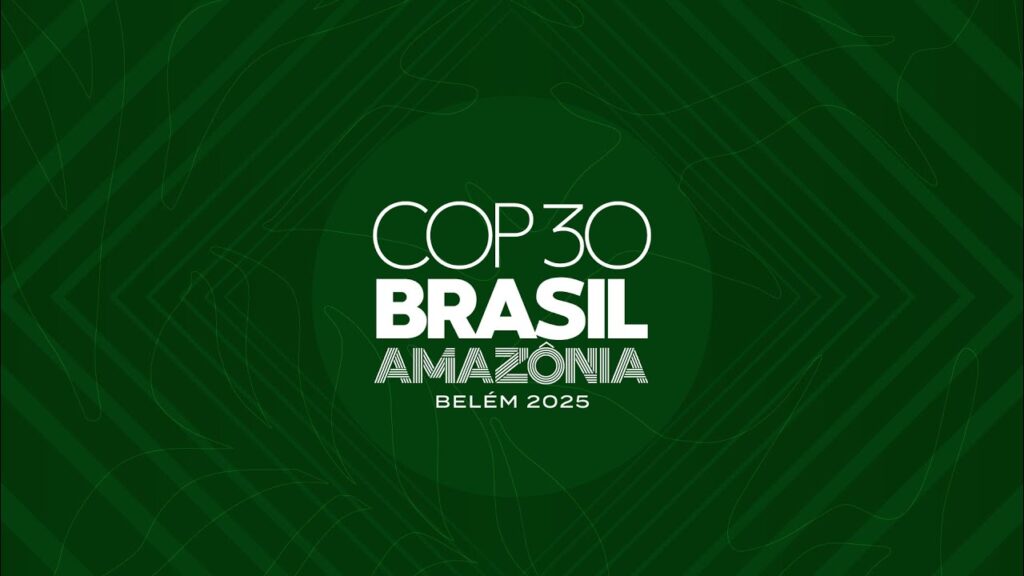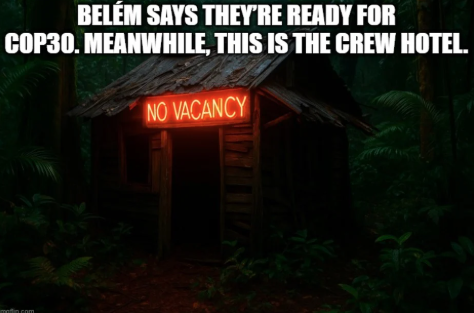COP30 Belém 2025: Business Aviation Guide

The Brazilian Government has issued comprehensive operational restrictions for COP30 that will create one of the most challenging aviation environments Brazil has faced since the 2016 Olympics. The United Nations Climate Conference runs November 10–21, 2025 at Belém, Brazil (SBBE), with a critical Leaders Meeting November 4–9 that brings maximum airspace and ground restrictions. Here’s what operators need to know to navigate this complex event successfully.
Understanding the Regulatory Framework
The Brazilian authorities, through DECEA, COMAE, and Itamaraty, have published two critical documents governing all flight operations during COP30:
AIC 42/25 defines temporary airspace restrictions and defense zones throughout the COP30 period.
Operational Manual for Leaders’ Arrivals & Departures establishes specific ground and slot procedures for the Leaders Meeting (Nov 4–9).
These publications provide the complete operational framework for civil, military, and diplomatic flights during the entire conference.
Airspace Restrictions: Know Your Zones
Control & Coordination Airspace within the Amazon FIR and Belém TMA will be monitored by CGNA (Master Command & Control) and DTCEA-BE (Local Cell). COMAE retains authority to restrict, suspend, or cancel flights for safety, defense, or capacity reasons.
Validity Period Airspace measures activate November 3 through November 22, 2025, covering both the Leaders Meeting (4–9 NOV) and main COP30 sessions (10–21 NOV). The most restrictive phase occurs November 4–9, when only official government and head-of-state flights are permitted at SBBE.
Zone Structure and Requirements
- WHITE Zone (Reserved) – Surface to FL195, 80 NM radius All flights require active transponder, ATC communication, and prior clearance (PVC/RPL 24 hours in advance). Training, VFR, ultralight, or recreational flights are prohibited. Non-destination traffic will be rerouted.
- YELLOW Zone (Restricted) – Within White, 60 NM radius Access by COMAE authorization only. Permitted flights include official, government, law enforcement, military, air ambulance, and approved diplomatic aircraft.
- RED Zone (Prohibited) – 4 NM radius (Parque da Cidade) Only COMAE-authorized aircraft (Heads of State, SAR, Defense). Unauthorized entries are considered hostile and subject to interception.
- SUPPRESSION AREA – Within Red No flights permitted except human-life emergency missions.
- AREVO/ACAV – FL150–240 Military control and refueling sectors under COMAE supervision.
- Flight Procedures: Critical Requirements
- Pre-Flight Planning PVC or updated RPL must be filed 24 hours in advance via SIGMA/FPL BR. Transponder and continuous communication are mandatory throughout the flight.
- Helicopter Operations Helicopters must use published REH routes. Segments near restricted zones may be suspended without notice.
- Drone Operations UAS allowed only in White Area with SISANT registration and SARPAS authorization. Unauthorized drones will be neutralized.
- Emergency Procedures
- Lost Comms outside restricted areas: divert and squawk 7600
- Lost Comms inside White Zone: maintain cleared route and avoid Red Zone
- Emergency: use 121.5 MHz and squawk 7700
SBBE Operational Constraints
- Runway Configuration RWY 07/25 active; RWY 03/21 closed. No right turns on RWY 07 or left turns on RWY 25 to avoid Red Zone incursions.
- Ground Requirements Towbar required onboard. Ground time limits will be strictly enforced; exceeding authorized stay may result in penalties or slot restrictions.
- Recommended Alternates SBFZ (Fortaleza) · SBEG (Manaus) · SBSG (Natal) · SBBR (Brasília) · SBSV (Salvador) · SBCF (Confins) · SBGL (Rio de Janeiro)
- Ground Operations During Leaders Meeting (Nov 4–9)
Airport Allocation Strategy
- Belém Air Base (SBBE Military) Exclusive for Heads of State and official delegations. No parking available for extended stays.
- Belém International (SBBE Civil) Limited stands for Category A–C aircraft only. Category D/E (large jets) cannot remain parked in Belém and must reposition immediately.
- Ground Services Handling, fuel, and catering must be arranged privately. No government-provided ground services available.
Remote Parking Solutions
Due to severe ramp space limitations, long-term parking should be arranged at alternate airports:
| Airport | Flight Time | Distance | AOE |
|---|---|---|---|
| SBFZ (Fortaleza/CE) | 01:55 | 1,136 km/706 mi | Y |
| SBEG (Manaus/AM) | 02:10 | 1,299 km/807 mi | Y |
| SBSG (São Gonçalo do Amarante/RN) | 02:25 | 1,534 km/953 mi | Y |
| SBBR (Brasília/DF) | 02:40 | 1,612 km/1,002 mi | Y |
| SBSL (São Lauiz/MA) | 00:55 | 481 km/299 mi | Y |
| SBSV (Salvador/BA) | 02:40 | 1,701 km/1,057 mi | Y |
| SBMQ (Macapá/AP) | 00:33 | 331 km/206 mi | N |
| SBCF (Confins/MG) | 03:05 | 2,087 km/1,297 mi | Y |
| SBGL (Rio de Janeiro/RJ) | 03:35 | 2,448 km/1,521 mi | Y |
| SBGR (São Paulo/SP) | 03:35 | 2,457 km/1,526 mi | Y |
Operators must coordinate logistics and include parking location in flight plans.
Slot Management and Diplomatic Clearances
- Allocation Rules Each nation receives one landing and overflight authorization (Head of Delegation’s aircraft). Support flights permitted only before November 3 or after November 10.
- Operational Windows 3-hour operational window per flight covering arrival, ground services, and departure.
- Request Process Submit requests via Note Verbale to: arrivals.leaders.cop30@itamaraty.gov.br (cc: sobrevoo.emaer@gmail.com)
Clearances are first-come, first-served. Confirmation required within 24 hours. Aircraft must arrive with maximum fuel to minimize turnaround time.
Protocol and Security Requirements
- Arrival Procedures No military honors or press coverage during arrivals.
- Delegation Limits Each delegation may accredit 10 personnel and 7 vehicles, submitted 7 days prior. Maximum 5 vehicles per convoy on apron.
- Security Protocols Armed security only at military bases with prior approval. VIP lounge access limited to 4 individuals per delegation.
Customs, Immigration & Special Items
Baggage Handling Delegations manage their own baggage and transport.
CIQ Facilitation Available upon Note Verbale listing all passengers.
Special Approvals Required
- Firearms, communications gear, and temporary imports require pre-approval by Federal Police, Customs, and ANATEL
- Agricultural goods and pets must follow MAPA Ordinance 834/2025
- Firearms documentation: send to security.leaders.cop30@itamaraty.gov.br (cc arrivals address)
Operator Recommendations
- Planning Timeline Plan flight slots and alternates at least 30 days in advance.
- Documentation Consistency Avoid changes in tail number or crew after slot confirmation.
- Communication Protocol Maintain constant communication with your local handler and monitor DECEA updates.
- Operational Expectations Expect tight parking capacity, security delays, and heightened ATC control throughout the event. Operators planning missions November 10–21 (conference phase) may expect lighter coordination, but airspace restrictions remain in effect.
- Operational Reality: What to Expect
COP30 will create an exceptionally challenging operational environment with significant infrastructure constraints in Belém. Despite intensive coordination between national authorities, operators should prepare for substantial logistical and service limitations.
Key Challenges

Infrastructure Limitations
- Limited ramp and parking capacity at SBBE requiring aircraft repositioning
- Severe slot congestion and potential last-minute DECEA or COMAE adjustments
- Minimal English-speaking staff among local service providers and government agencies
Service Constraints
- Restricted accommodation availability with hotels near capacity and elevated rates
- Ground transportation shortages, especially bilingual drivers and secure VIP transfers
- Limited catering options meeting international standards
- Possible communication delays between agencies affecting clearance coordination
Weather Considerations Weather unpredictability in the region, with frequent rain and thunderstorms in November, may cause additional operational disruptions.
Summary
November 4–9: SBBE exclusively dedicated to heads of state and government aircraft during the Leaders Meeting.
November 10–21: Operations gradually open for general business and diplomatic flights under strict airspace restrictions and controlled slot access.
Final Guidance
Operators should approach COP30 with realistic expectations and prepare for delays, last-minute changes, and reduced comfort levels compared to typical international events. Early slot booking, alternate airport coordination, and close communication with local handlers will be essential for maintaining operational safety and compliance.
Universal Aviation Brazil remains fully committed to supporting all clients with transparent updates, proactive coordination, and the best possible service within the constraints of the event environment.




